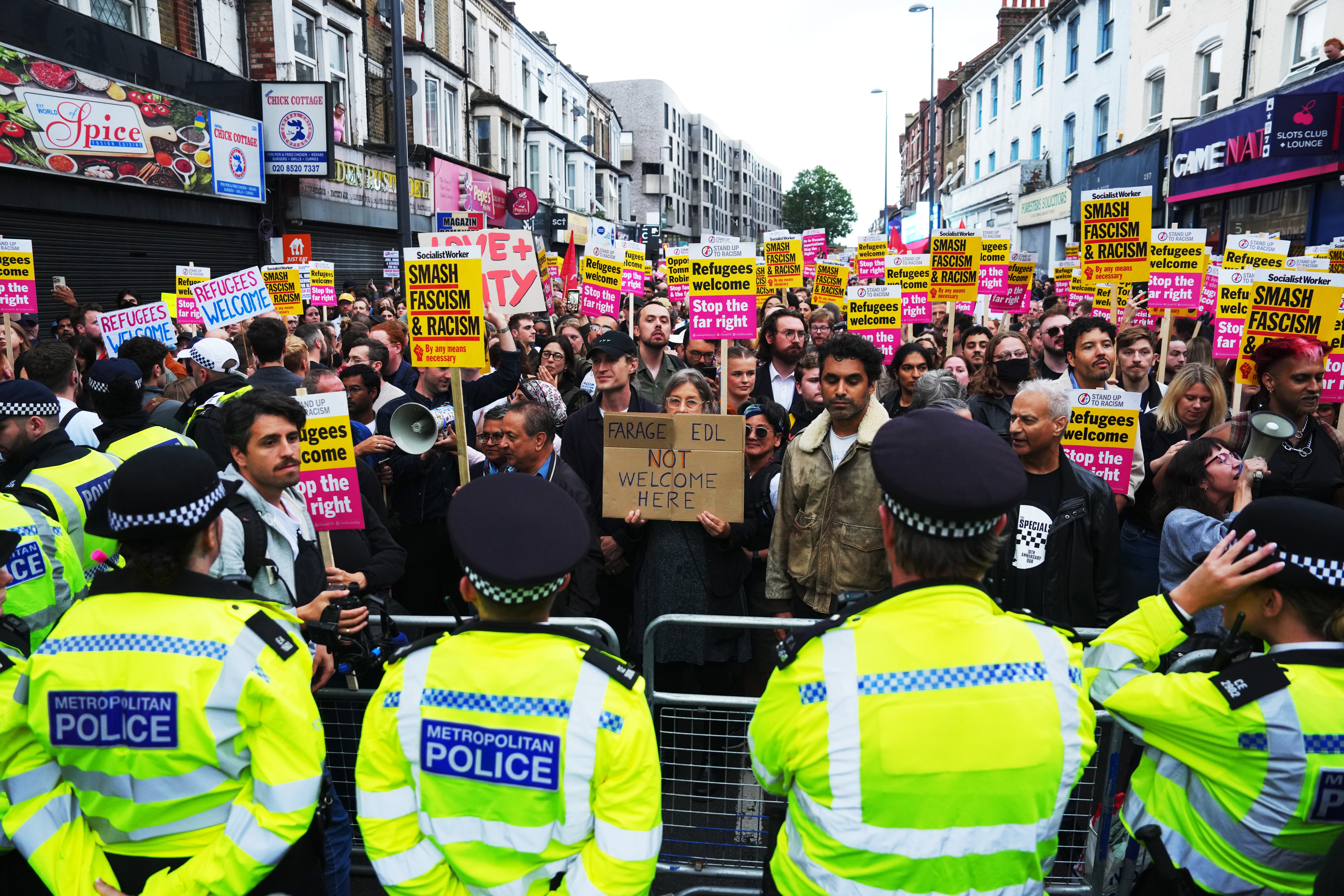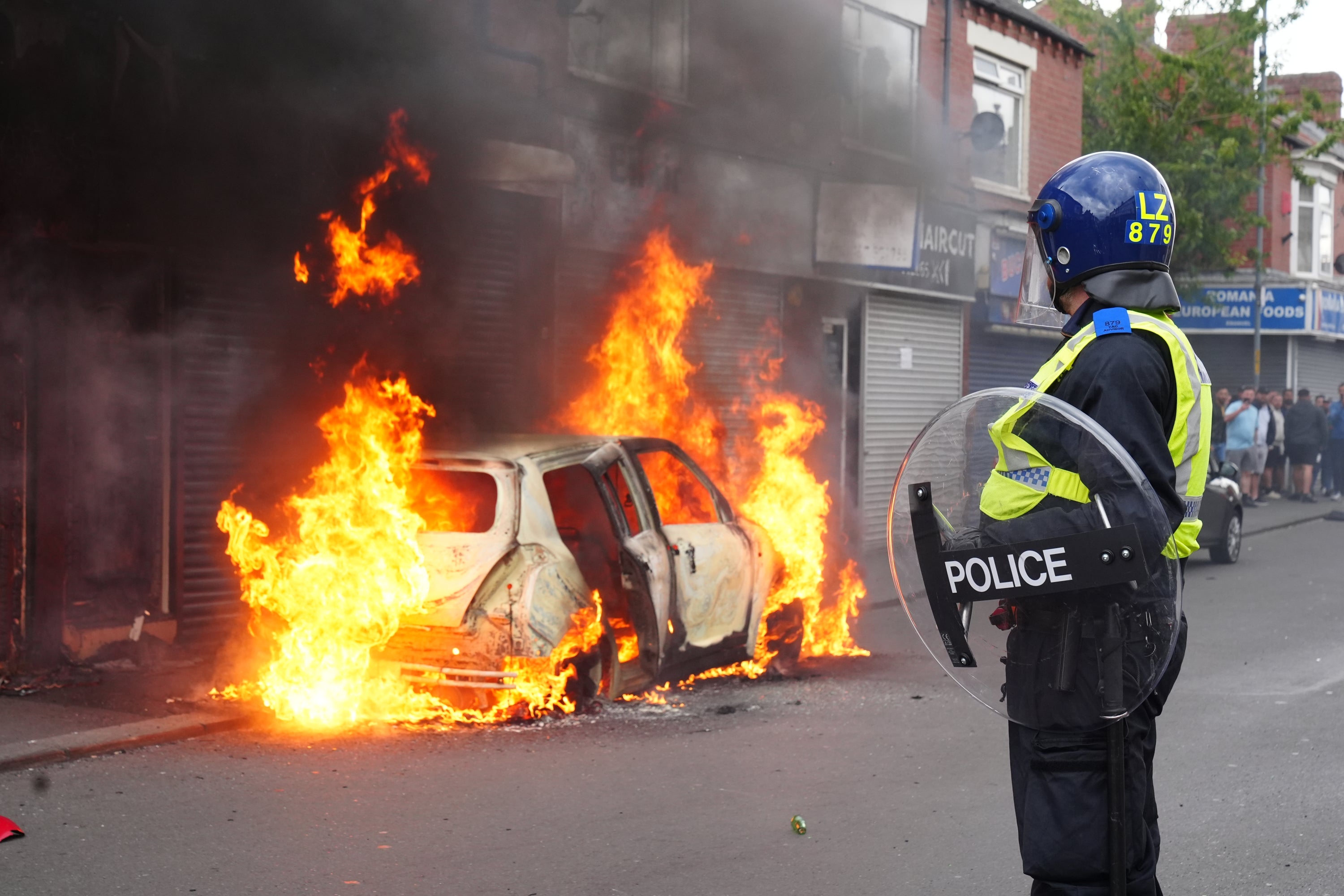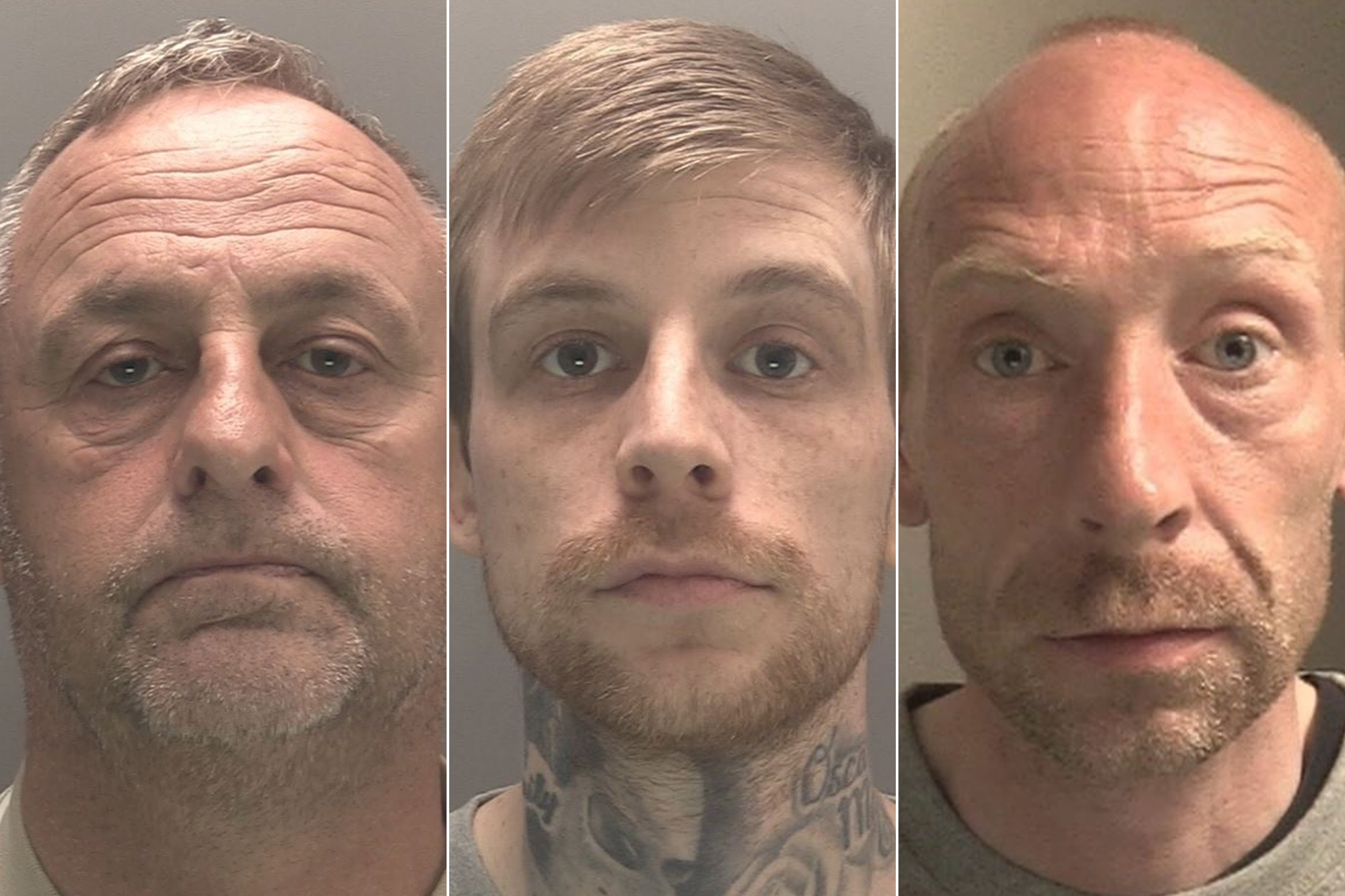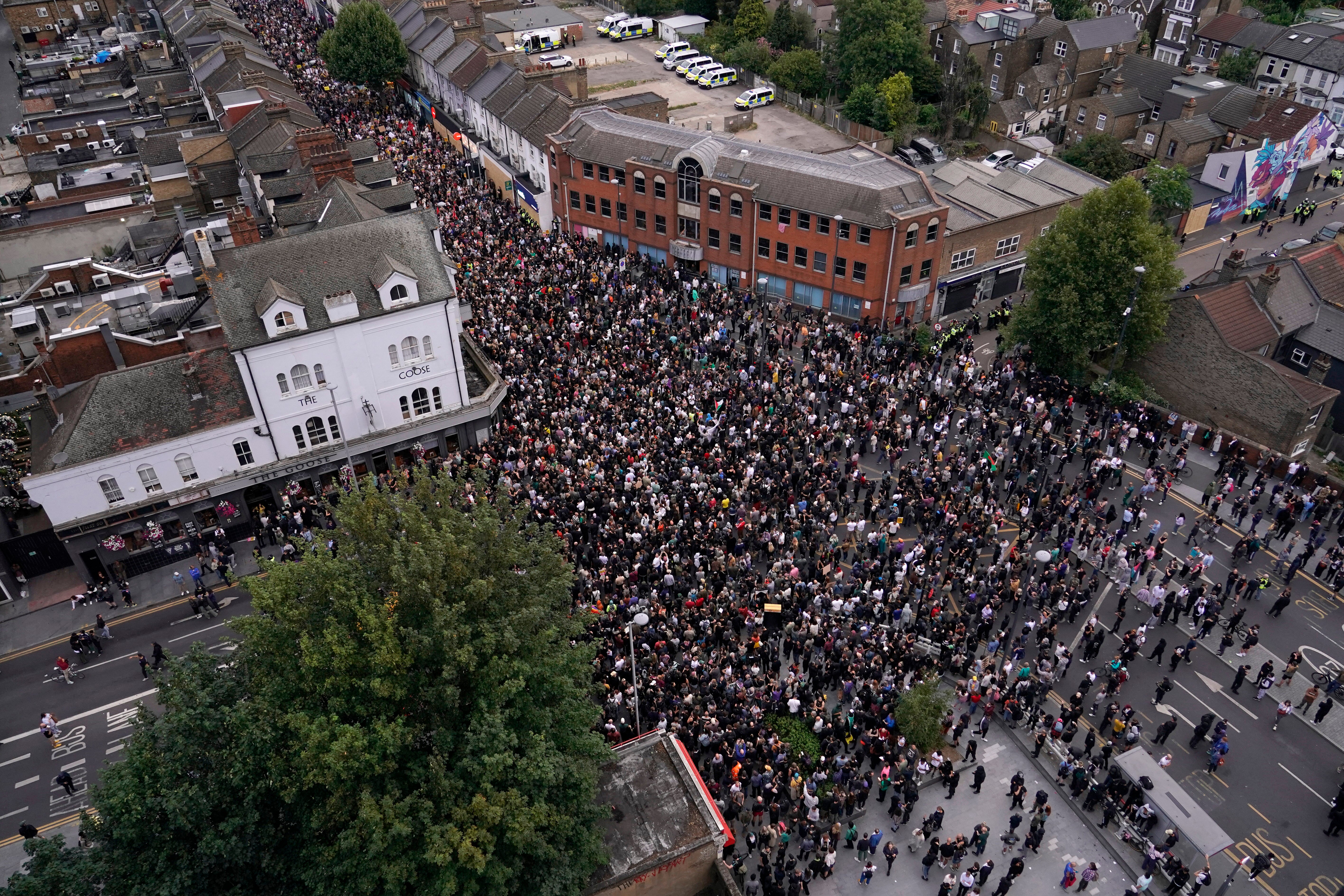Thousands of the far-right were expected to riot on Wednesday – why didn’t they turn up?
Anti-racist protesters outnumbered the far-right by thousands yesterday
Wednesday afternoon saw police and communities preparing for another wave of far-right riots following the disorder seen in town and cities across the UK last week.
Shops and homes were boarded up, migrant centres barricaded, and 6,000 police officers were mobilised across the country.
But when evening came, far-right rioters – for the most part – did not appear. This is despite the widely-reported plans for groups to mobilise around over 100 targets across the country, including nearly 40 migrant centres.
Instead, many target locations saw counter-protesters turn out in their thousands. On the streets of Walthamstow, East London, an estimated 5,000 anti-racist protesters could be seen holding placards reading ‘No Room for Racism’ and ‘Refugees Welcome’.

Similar scenes unfolded in places like Brighton, Bristol, Newcastle and Liverpool. These were very different images to what the country saw in Southport last week or across England and Northern Ireland over the weekend.
Hundreds of people have been arrested and dozens of police officers injured in the wake of the disorder last week. Police have said intelligence suggests more riots can be expected, but many take Wednesday’s events as a sign that the worst may now be over.
So why did far-right rioters not mobilise on Wednesday like they did last week? Here’s everything you need to know:
Number of arrests
More than 400 people have now been arrested following last week’s disorder, many during the events and some in the days after. Police have undertaken raids on homes, taking them into custody after identifying them as suspects through investigation.
Met Police Commissioner, Mark Rowley, said: “We’ve been out doing some dawn raids this morning, the people who were most violent in the Whitehall protests and violence last week … about 70 percent of them have got criminal backgrounds.”
“We’ve got criminal damage, violence, weapons offences, football banning orders. These are criminal thugs. Any suggestion that they’re patriots, or they’ve got a cause that they’re protesting about is nonsense, and frankly, most of them are going to be charged with violent disorder and most of them are going to prison for a few years.”

Also working on the side of authorities is social media images and footage. Features that have been developed over the past few years, such as livestreaming and location tagging, will prove useful for police to gather intelligence. A police source told The Guardian: “Every force will have analysts monitoring social media, [such as] TikTok, for evidence-gathering purposes.”
Footage of arrests and raids on homes will likely have a strong deterrent effect on those considering rioting who don’t want to end up in the same position.
Strict sentencing
Following the disorder in Southport and beyond, the Crown Prosecution Service (CPS) has worked to quickly sentence those involved in the rioting. Several have been sentenced already, their cases moved to the top of the queue despite the UK’s sometimes years-long court case backlog.
Three men became the first to be jailed on Wednesday for their involvement in the Southport rioting. The longest sentence went to Derek Drummond, 58, from Southport, who has been jailed for three years after pleading guilty to violent disorder and assaulting an emergency worker.

Director of public prosecutions, Stephen Parkinson, said: “There are sentencing guidelines which indicate that many people who have been caught up in this disorder will face immediate imprisonment. There should be no doubt about that. They are going to prison.
“We are willing to look at terrorism offences. I’m aware of at least one instance where that is happening.”
It’s likely the strong language from Mr Parkinson, which has been echoed by PM Keir Starmer and home secretary Yvette Cooper, has put off many would-be rioters. And now that we’re seeing the kind of sentences people can expect to receive for joining in with the violence, the deterrent has grown even stronger.
Counter-protesters
Unlike the far-right riots last week, the targeted plans for Wednesday were shared far and wide on social media. It’s possible that organisers felt emboldened to share details more openly following the relatively high turn-out for the riots over the weekend.
Shops, homes and the targeted migrant centres prepared for violence by boarding up their windows and even barricading doors. Police forces responded by deploying over 6,000 officers to deal with more potential disorder.

But perhaps most crucial of all was the massive presence of anti-racist counter-protesters in locations all over the UK. These giant crowds dwarfed the far-right presence in most places, already dwindling compared to recent days.
The movements were organised with the help of campaign group Stand Up to Racism. The anti-racist organisation has organised dozens of further protests for a ‘National Day of Protest’ on Saturday, aiming to “stop the far-right”. In London, the crowd will gather outside of the Reform UK head office.
Commenting on the scenes in London, Mr Rowley said: “It was a massive policing operation. I’m really pleased with how it went.”
“We put thousands of officers on the streets, and I think the show of force from the police, and frankly, the show of unity from communities together, defeated the challenges that we’ve seen, and it went up very peacefully last night.”

